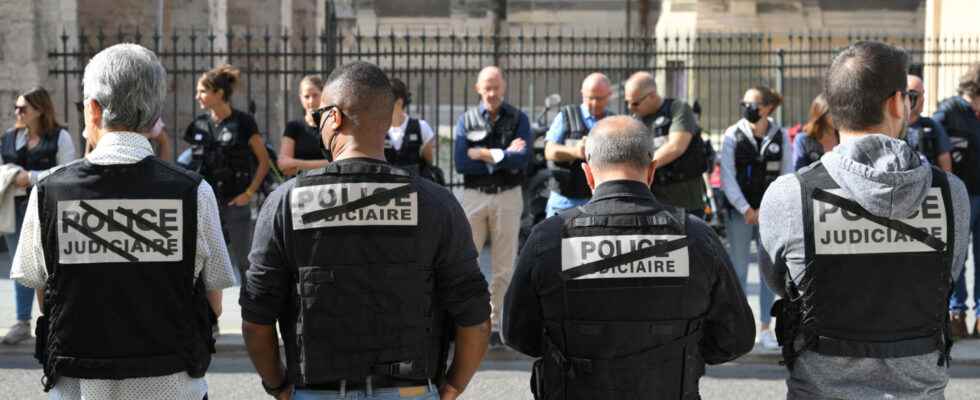William Molinié, edited by Gauthier Delomez with AFP
Investigators and the judiciary are up against the reform of the judicial police, which is due to come into force from 2023. If the General Directorate of the National Police and Gérald Darmanin push for reform, the police fear of collapsing under the files and fear a “breakage of the investigation”.
The police are grumbling over the reform of the judicial police. On the eve of the ousting of Éric Arella, the director of the southern zone of the PJ this Friday, a demonstration had been organized in Marseille against this reform which should come into force from 2023. However, the General Directorate of Police national (DGPN) wants to push it to the end.
For the moment, there is no question of backing down on this reform, the general principle of which is to install, in each department, a chief of police who would have authority over public security, the judicial police, intelligence or even the fight against immigration.
The fight against serious organized crime in question
The judicial police are wary of this reform: they are afraid of being overwhelmed by daily crime files and of no longer being able to fight against serious organized crime, which the investigators and the judicial world sum up by a “break in the investigation “. Until now, the discontent of the investigators remained in the privacy of the police stations. Now, this discontent has taken a new turn and is expressed in broad daylight in the street.
This is all that the Minister of the Interior Gérald Darmanin wanted to avoid, who will defend the budget next week in the National Assembly of the Lopmi, the orientation and programming law of the ministry for the next five years.
Sanctuarize the judicial police?
The director general of the national police had been instructed to tour the police services in France to prevent this contained anger from interfering with parliamentary debates. A possible way out of the crisis could be that of sanctuarizing the judicial police so that it is not affected by this reform.
However, this solution would considerably weaken Gérald Darmanin, who repeats in a small committee that he has no intention of watering down his copy.
